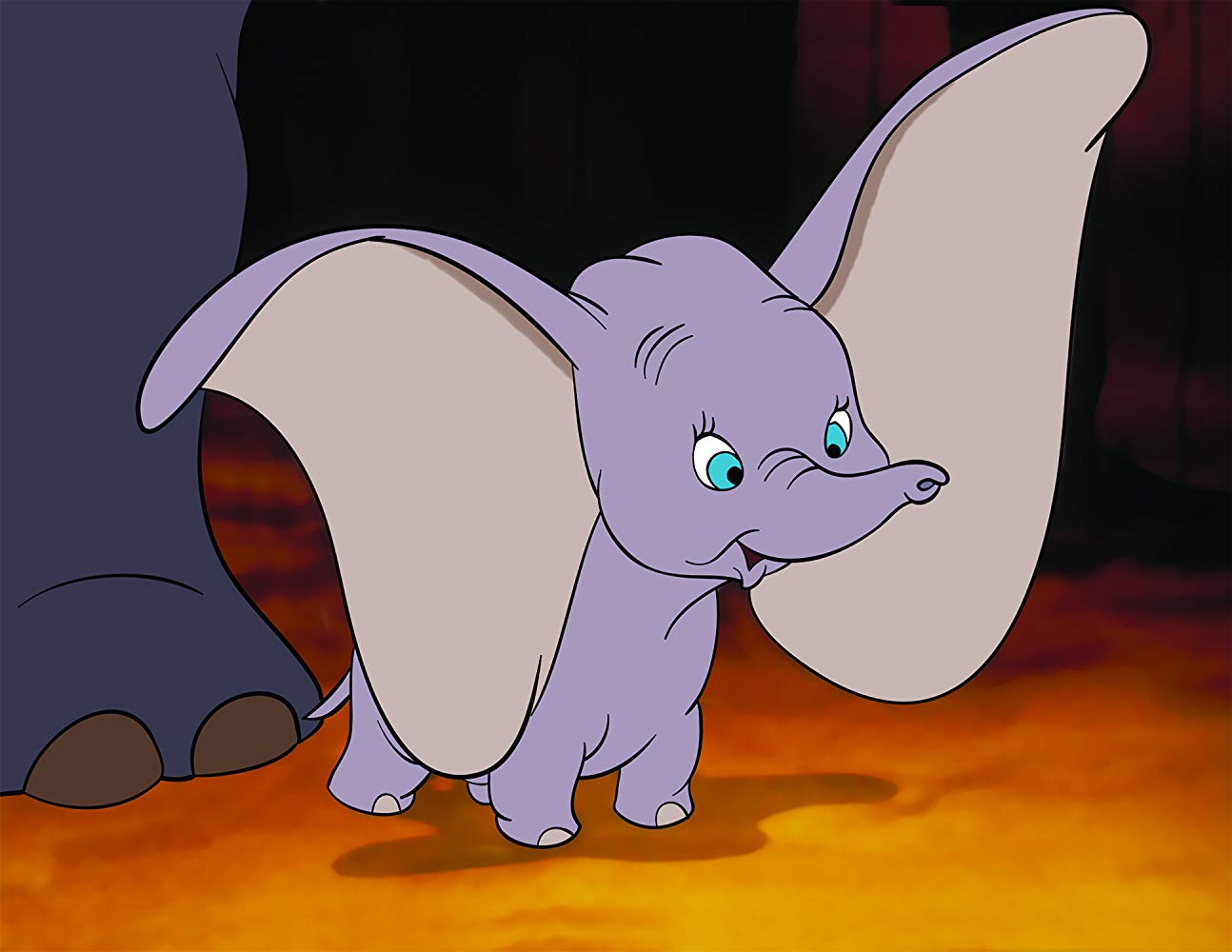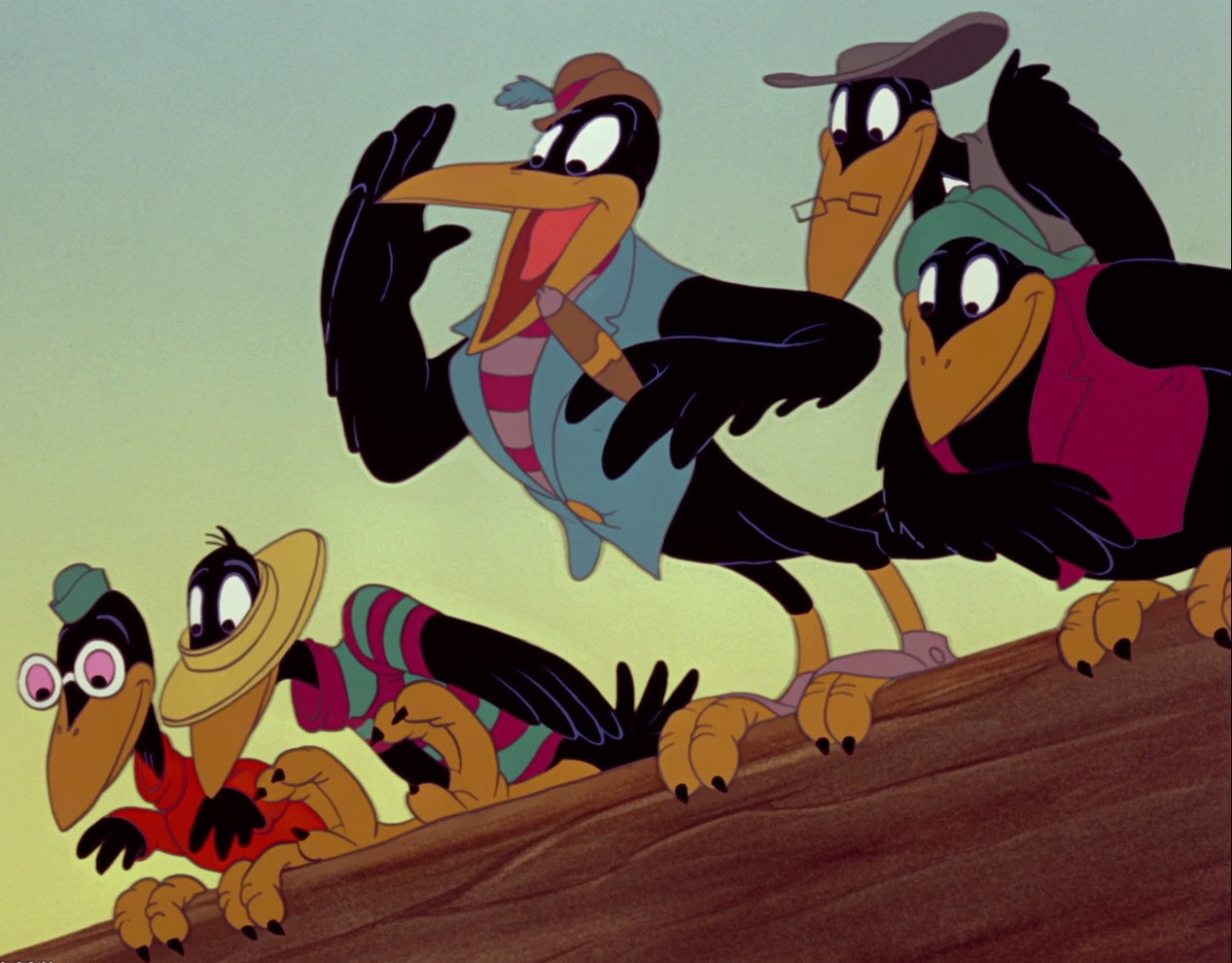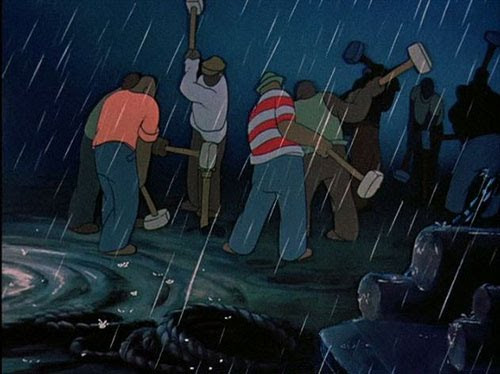Difference between revisions of "Dumbo (1941)"
| (15 intermediate revisions by the same user not shown) | |||
| Line 1: | Line 1: | ||
| − | [[File:Dumbo-1941.jpg|thumb|250px|Dumbo, the main character of Dumbo Disney's animated movie in 1941]]Dumbo | + | [[File:Dumbo-1941.jpg|thumb|250px|Dumbo, the main character of Dumbo Disney's animated movie in 1941]] |
| + | Dumbo is an American animated film produced by Walt Disney Productions. It was one of the Disney Classic animated series that was published by the time. The film was released on October 23, 1941 under RKO Radio Pictures. The movie is based on the storyline by Helen Aberson and Harold Pearl, and illustrated by Helen Durney. Jumbo Jr. is the main character of the movie, a semi-anthropomorphic elephant who is called "Dumbo", resembles "dumb". He is often moved for having big ears, however, he has the ability to fly using them as wings. Throughout the film, Dumbo has only one true friend named Timothy. ThHe mouse who is being his only true friend, aside from his mother. | ||
| + | ==Plot== | ||
| + | Dumbo, a youthful carnival elephant, was brought into the world with cleverly enormous ears has been given the nickname "Dumbo". One day, he was getting insulted by a group of children. In an attempt to protect Dumbo, his mother became extremely angry to the children that caused her being secured. In later times, Dumbo's huge ears created accidents that harm a lot of different elephants. He was then made to dress like a comedian and perform risky tricks. Dumbo then learned that his huge ears gave him the ability to fly. He baffled everybody at the bazaar with his new ability. | ||
| − | == | + | ==Controversy== |
| − | + | [[File:The crows.jpg|thumb|250px|left|The group of crows that assist the titular elephant in Dumbo]] | |
| + | The film has been criticized by some for having racial prejudice. The Encyclopedia of Racism in American Films (2018), mentions that ''"All of the circus laborers are African American, the only time that blacks are seen in any great number in the entire movie."''<ref>Murguia, Salvador (2018). [https://books.google.com/books?id=Ch7eswEACAAJ The Encyclopedia of Racism in American Films]. Rowman & Littlefield. p. 164. ISBN [https://en.wikipedia.org/wiki/Special:BookSources/978-1-4422-6905-7 978-1-4422-6905-7].</ref> Near the end of the movie, Dumbo and Timothy, meet a group of crows who were designed to conveniently match racial stereotypes of African-Americans. | ||
| − | + | The crow group sparks controversy because the crow was sounding a Southern African American dialect while in fact it was voiced by a white actor, [https://en.wikipedia.org/wiki/Cliff_Edwards Cliff Edwards]. He was also named after the pre-Civil-War minstrel character,[https://en.wikipedia.org/wiki/Jim_Crow_(character) Jim Crow], where the term “Jim Crow” was taken from "Jump Jim Crow”. It was a parody song performed by a white man in blackface. The parody song refers to African-American people.<ref>https://screenrant.com/dumbo-crows-disney-plus-version/</ref>. | |
| − | + | ||
| − | + | Another black racism or black stereotype shown in the movie is where the movie introduces the “Song of the Roustabouts”. This scene is showing African-American characters, without facial features, working on the railroad while singing some offensive lyrics. The song openly features racism by using language that fits racial stereotypes. Below is the quoted offensive lyrics that are taken from ''disney.fandom''; | |
| + | [[File:Song of roustabouts.jpg|thumb|right|Dumbo “Song of the Roustabouts” (1941)]] | ||
| + | {{Quote|text="We work all day, we work all night | ||
| + | |||
| + | We never learned to read or write | ||
| + | |||
| + | We're happy-hearted roustabouts | ||
| + | |||
| + | Hike! Ugh! Hike! Ugh! Hike! Ugh! Hike! | ||
| + | |||
| + | When other folks have gone to bed | ||
| + | |||
| + | We slave until we're almost dead | ||
| + | |||
| + | We're happy-hearted roustabouts"<ref>https://disney.fandom.com/wiki/Roustabouts_(song)</ref>}} | ||
| − | == References == | + | ==References== |
{{Reflist}} | {{Reflist}} | ||
| − | [[Category:Black Racism in Disney Classic Animated Movies]] | + | [[Category:Black-Targeted Racism in Disney Classic Animated Movies]] |
Latest revision as of 09:12, 15 March 2021
Dumbo is an American animated film produced by Walt Disney Productions. It was one of the Disney Classic animated series that was published by the time. The film was released on October 23, 1941 under RKO Radio Pictures. The movie is based on the storyline by Helen Aberson and Harold Pearl, and illustrated by Helen Durney. Jumbo Jr. is the main character of the movie, a semi-anthropomorphic elephant who is called "Dumbo", resembles "dumb". He is often moved for having big ears, however, he has the ability to fly using them as wings. Throughout the film, Dumbo has only one true friend named Timothy. ThHe mouse who is being his only true friend, aside from his mother.
Plot
Dumbo, a youthful carnival elephant, was brought into the world with cleverly enormous ears has been given the nickname "Dumbo". One day, he was getting insulted by a group of children. In an attempt to protect Dumbo, his mother became extremely angry to the children that caused her being secured. In later times, Dumbo's huge ears created accidents that harm a lot of different elephants. He was then made to dress like a comedian and perform risky tricks. Dumbo then learned that his huge ears gave him the ability to fly. He baffled everybody at the bazaar with his new ability.
Controversy
The film has been criticized by some for having racial prejudice. The Encyclopedia of Racism in American Films (2018), mentions that "All of the circus laborers are African American, the only time that blacks are seen in any great number in the entire movie."[1] Near the end of the movie, Dumbo and Timothy, meet a group of crows who were designed to conveniently match racial stereotypes of African-Americans.
The crow group sparks controversy because the crow was sounding a Southern African American dialect while in fact it was voiced by a white actor, Cliff Edwards. He was also named after the pre-Civil-War minstrel character,Jim Crow, where the term “Jim Crow” was taken from "Jump Jim Crow”. It was a parody song performed by a white man in blackface. The parody song refers to African-American people.[2].
Another black racism or black stereotype shown in the movie is where the movie introduces the “Song of the Roustabouts”. This scene is showing African-American characters, without facial features, working on the railroad while singing some offensive lyrics. The song openly features racism by using language that fits racial stereotypes. Below is the quoted offensive lyrics that are taken from disney.fandom;
"We work all day, we work all night
We never learned to read or write
We're happy-hearted roustabouts
Hike! Ugh! Hike! Ugh! Hike! Ugh! Hike!
When other folks have gone to bed
We slave until we're almost dead
We're happy-hearted roustabouts"[3]
References
- ↑ Murguia, Salvador (2018). The Encyclopedia of Racism in American Films. Rowman & Littlefield. p. 164. ISBN 978-1-4422-6905-7.
- ↑ https://screenrant.com/dumbo-crows-disney-plus-version/
- ↑ https://disney.fandom.com/wiki/Roustabouts_(song)


